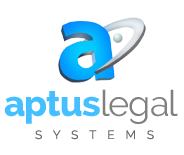When you think of bold, innovative users of transformational technology like artificial intelligence (AI), you naturally think: lawyers.

inteligencia artificial abogados
It’s obvious, right? Risk-averse, measured, charge-by-the-hour, brick-and-mortar professionals that parse the written word (“Heretofore? No, hitherto!”) and deliver cautious, nuanced advice (“I didn’t hear your question, but regardless my answer is: It depends.”).
Who better to make practical use of today’s cutting-edge AI? (“Alexa, draft an amicus brief in support of my motion in limine. Please.”)
Lest the irony be missed, the legal industry is deservedly notorious for being a technological step or two—or more—behind its clients.
Yet law firms and savvy corporate legal teams have been pioneering the use of artificial intelligence since the last decade. There is not a litigator of note today that hasn’t heard of Predictive Coding or Technology Assisted Review.
These terms refer to the use of machine learning to mimic an attorney’s decision-making in the context of legal discovery, the process of identifying and reviewing up to millions of documents to determine which must be produced to the other side in litigation or an investigation. Predictive Coding can mean dramatically faster and more accurate document analysis and review.
Why are lawyers leveraging AI for document review?
- Big Data: The growing amounts and kinds of data generated by workers—in office programs, cloud apps, chat systems, shared workspaces—means an ever-increasing challenge for legal and compliance officers. To them, all of this work product is potential evidence.
- Bigger cost: Of the more than $200B spent on litigation across the US annually, 70% is spent on discovery, and 70% of that discovery spend goes to document review. So, anything that can accelerate or reduce review means substantial savings for corporate clients.
- Irrelevant content: No one likes reviewing irrelevant data. (Imagine if you had to carefully read your junk email before deleting it.) Front-loading relevant content makes document review more engaging for attorneys, which improves their productivity and accuracy.
- The need for speed—to insight: Over 95% of civil cases settle, as the uncertainty and cost of a trial is generally to be avoided at nearly all costs. Finding the evidence that proves or disproves your liability early on is key to negotiating a favorable settlement.
Think Netflix or Pandora on steroids.
Predictive Coding is about finding more like this, where this is a piece of unstructured data (an e-mail, slide deck, letter, memo, etc.) and the more like are documents that are conceptually similar—even though they may not contain the same words that made this relevant in the first place.
Documents that are similar in concept but use substantially different language can be equally significant for litigation and investigations. That’s why Predictive Coding goes far beyond traditional Boolean keyword search.
To enable Predictive Coding, the system performs statistical analysis on the co-occurrences of all the words in each document ingested, even across millions of documents. It then creates sophisticated models around a handful of documents judged by attorneys to be relevant to the issue under review. It looks across the data set and finds more documents closely related to those models and suggests them to the attorneys for priority review.
As attorneys review the suggested documents and label them relevant or irrelevant, the system gets smarter, refining the document models for even better results in the next round. With Predictive Coding, attorneys can find virtually all the relevant content in a data set by reviewing just 10-30% of it, shaving off weeks or months of tedious review and surfacing critical evidence far faster.
What OpenText is doing about it:
In 2016, OpenText acquired Recommind, a pioneer in advanced analytics for the legal industry for over 15 years. With unparalleled Predictive Coding and other unique capabilities, OpenText™ Discovery Suite helps enterprises discover what matters in their data—faster and more accurately.
2017 is poised to be a banner year for legal technology, as awareness and experience with Predictive Coding are approaching critical mass. Our vision is to see machine learning used to add value to every matter, on virtually every data set.
After all, who better to drive technological innovation than your venerable counsel?
